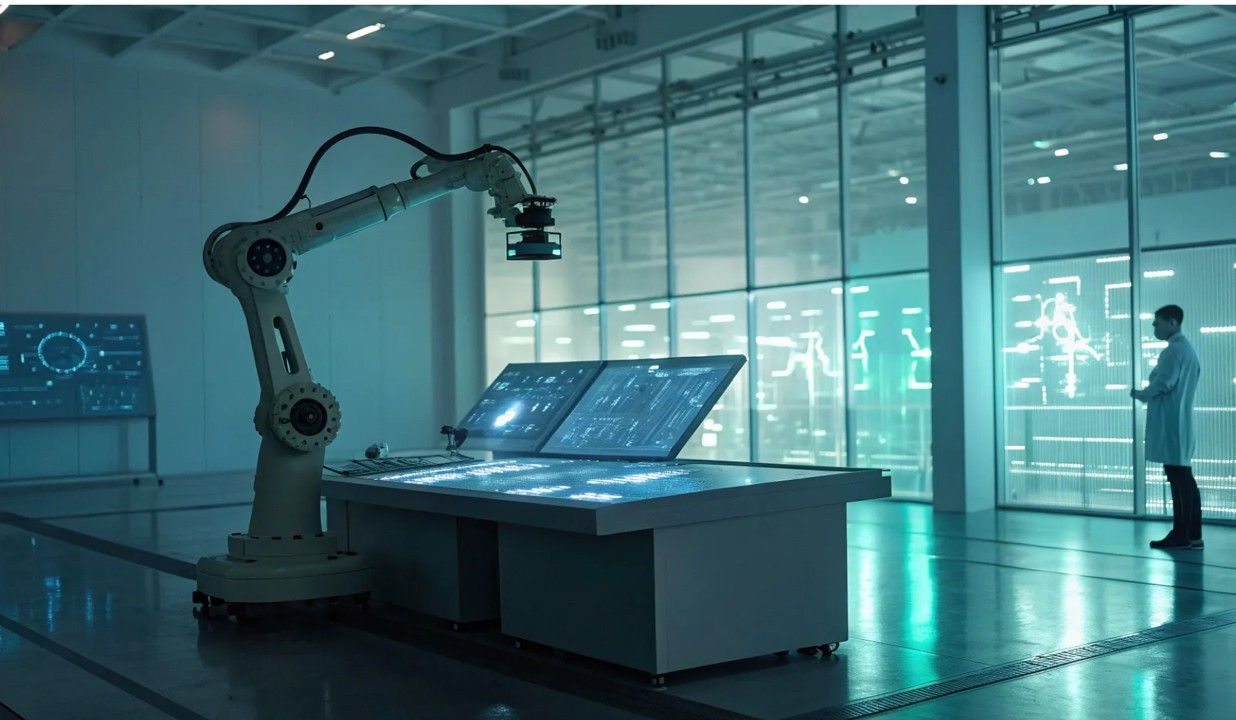Artificial Intelligence (AI) has emerged as a key player in driving efficiency and innovation, but with it continuously evolving companies need to proceed with caution. We explore the integration of AI into business automation, detailing how it leads to smarter processes and better outcomes across various industries.
The Emergence of AI in Business Automation
AI's foray into business automation marks a significant shift from traditional process management. By harnessing the power of machine learning, natural language processing, and predictive analytics, AI brings a level of intelligence and adaptability to automated processes, enabling businesses to operate more effectively and efficiently.
Transforming Business Operations with AI
- Enhanced Efficiency and Productivity: AI-driven automation accelerates routine tasks, from data entry to complex computations, allowing businesses to allocate human resources to more creative and strategic tasks. This shift not only boosts productivity but also employee satisfaction and engagement.
- Data-Driven Decision Making: AI's ability to process vast amounts of data quickly and accurately translates into more informed decision-making. Businesses can leverage AI for market analysis, customer behavior insights, and trend predictions, leading to smarter business strategies.
- Personalization and Improved Customer Experience: AI excels in personalizing customer interactions. From tailored product recommendations to personalized marketing messages, AI's data analysis capabilities enable businesses to cater to individual customer preferences, enhancing the overall customer experience.
- Risk Mitigation and Compliance: In industries like finance and healthcare, AI helps in identifying potential risks and ensuring compliance with regulatory standards. AI algorithms can detect anomalies in financial transactions or patient data, aiding in early intervention and risk management.
- Operational Cost Reduction: By automating routine tasks and optimizing resource allocation, AI significantly reduces operational costs. It also minimizes human error, further cutting down unnecessary expenses.
Real-World Applications of AI in Business Automation
- Retail: AI in retail automates inventory management and optimizes supply chain logistics, ensuring product availability and timely delivery.
- Healthcare: AI automates administrative tasks, assists in diagnostic processes, and personalizes patient care plans.
- Banking and Finance: AI streamlines processes like loan approvals, fraud detection, and personalized financial advice.
- Manufacturing: In manufacturing, AI enhances production efficiency, predictive maintenance, and quality control.
Despite its benefits, integrating AI into business processes poses challenges:
- Integration with Existing Infrastructure: Merging AI with legacy systems can be a complex process requiring significant investment.
- Data Security and Privacy Concerns: Handling large volumes of data with AI raises issues regarding data security and privacy.
- Ethical and Bias Issues: Ensuring AI systems are unbiased and ethically programmed, especially in decision-making processes, is essential.
- Skill Gap: The rise of AI in business necessitates a workforce skilled in AI technology and data analysis.
The Future of AI in Business Automation
The future of AI in business process automation looks promising:
- Broadening AI Adoption: AI will become more pervasive, finding applications in various sectors beyond current mainstream industries.
- Advancements in AI Technology: Ongoing improvements in AI technology will enable more sophisticated and nuanced applications in business automation.
- Human-AI Collaboration: Future trends point towards a collaborative model where AI supports human workers, enhancing capabilities rather than replacing them.
- Focus on Ethical AI: Developing and implementing ethical AI practices will gain prominence, ensuring fairness and transparency in automated processes.
AI enables businesses to leverage data-driven insights, enhance efficiency, and personalize customer experiences. However, navigating this technological advancement requires addressing challenges such as integration complexities, data privacy, and ethical considerations.
Businesses embracing this AI revolution will find themselves well-positioned to lead in their respective industries, armed with the power of smart automation and advanced analytics. Today, AI in business automation is not just a technological trend; it's a strategic imperative for sustainable growth and success.
Want to use AI to streamline operations, reduce errors, and enhance customer satisfaction levels? Book a demo today to learn how you can take advantage of AI in workflow automation.







